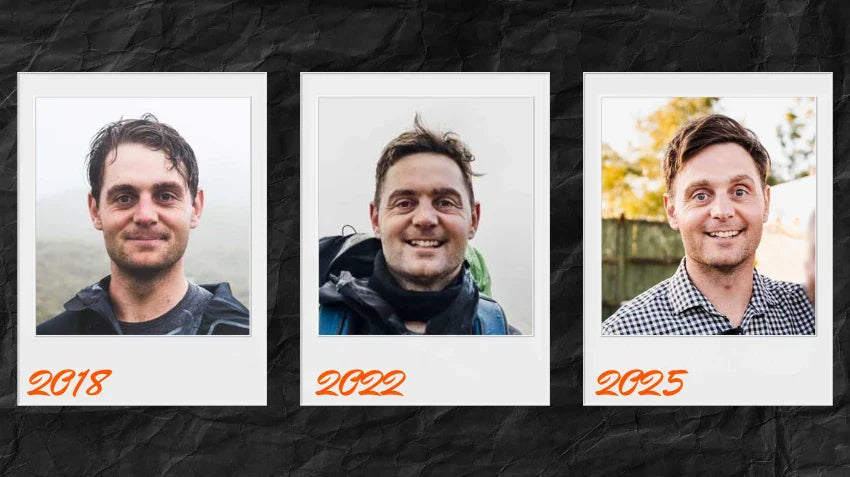The recent DecodeME study has made headlines by providing the first robust evidence that genetic variation contributes to the risk of developing ME/CFS. For many people, this feels like long-overdue validation—that ME/CFS is real, physical, and not “all in the head.”
While I have always seen ME/CFS as real and physical and did not need DecodeME to prove this to me, one of my clients told me something very moving. She said that her husband hasn’t believed her ME/CFS is real for 30 years. Yet, after reading the DecodeME study, he finally believed her.
It’s heartbreaking that it took a genetics study to bring him to that point of believing his wife. To live for decades without the belief and support of your partner is a devastating reality that far too many people with ME/CFS experience. That’s why any validation, in any form, can feel like a relief.
But there’s another side to this. Could the way this study is interpreted actually make people feel more helpless and less likely to seek recovery options? When I had CFS myself, seeing results like these would have crushed me. I would have thought, “If it’s my genes, there’s nothing I can do. I’m stuck like this forever. There's no treatment for this”
And yet, I did recover from ME/CFS. Many of my clients have recovered too.
While I welcome the study as a step forward in recognition, I also think we need to be cautious about how we interpret it.
What the DecodeME Study Actually Shows
The DecodeME project is the world’s largest genetic study of ME/CFS, involving 15,579 people with CFS and 259,909 healthy controls. Researchers found differences in eight areas of DNA that might increase susceptibility to the illness (DecodeME preprint, 2025).
But this is not the same as saying “you definitely will” or “you definitely won’t” get CFS. It shows possible risk factors, not fixed outcomes. This is very different from haemophilia for example. If you have an error in F8 or F9 gene on the X-chromosome, you are guaranteed to have haemophilia your whole life. If these genes are good, you will never have haemophilia ever in your life. It is a clear cut genetic disorder. But this is not what’s happening in the case of ME/CFS. ME/CFS is not a permanent, life-long state for most people. There is normal life before it, and thankfully for many, normal life after it. It seems that there are people who may have more of a genetic predisposition towards ME/CFS and a sensitive nervous system or nervous system dysregulation issues, and that those people may then be more likely to develop the illness if life circumstances then activate their nervous system. These DecodeME findings are therefore likely to be demonstrating more about likelihood and increased disposition, not destiny.
Beyond Genetics: What Else Influences ME/CFS?
If genes only increase likelihood, what else tips the scales? In my view, factors such as stress, early trauma, diet, exercise, and nervous system dysregulation play a major role. These influences don’t just affect whether you develop ME/CFS—they also put recovery back into your hands. Genes may load the gun, so to speak, but these other factors pull the trigger... or put the safety catch back on.
Limitations of the DecodeME Study
While groundbreaking in size, the DecodeME study does have some important limitations:
-
Comparison group
They compared people with ME/CFS to the healthy population—but not to those with other chronic illnesses such as fibromyalgia, endometriosis, or autoimmune conditions. So have they discovered genes unique to CFS, or simply genes common to people who develop chronic illness in general? Their results did indicate possible differences between ME/CFS, Long-COVID and depression genetic makeup, but I think this net of conditions needs broadening and further investigation made.. -
No comparison with recovered individuals
They did not compare DNA of people who currently have CFS with those who have since recovered. That’s crucial. Are they measuring a cause of CFS, or a symptom of CFS? It would be interesting to test people from DecodeME in five years time who have since recovered to see what changes are observed, since they already have their DNA records from while they had ME/CFS. -
The epigenetic question
Research in other fields shows us that genes switch on and off throughout life depending on environment and lifestyle. One landmark study in men with prostate cancer found that just three months of nutrition, exercise, stress management, meditation and support led to changes in the activity of over 500 genes linked to tumour growth. Forty-eight genes were up-regulated (turned on) and 453 genes were down-regulated (turned off). Many of the gene switches significantly changed the biological processes that had caused the cancer in the first place, including tumorigenesis and protein metabolism and modification. (Ornish et al., 2008, PubMed ID: 18559852).
So it’s possible that DecodeME is capturing a symptom of chronic illness rather than its root cause.
Don’t Lose Hope
The DecodeME study validates that ME/CFS is real, physical, and biological. That’s important. But it doesn’t mean recovery isn’t possible. In my work, around 80% of clients report major improvements getting back to "very good" or "excellent" health and many reporting full recovery. Given that I have worked with hundreds of people with ME/CFS over a 15 year period, many of them will undoubtedly carry some of the genetic markers DecodeME identified.
So please don’t roll over and feel helpless because of these findings. Feel validated, yes—but also know that recovery is still within reach.
Recovery options at Empower Therapies
If this is your first time exploring these ideas and you’re just starting to dip your toe in the water, a great place to begin is our free 40-minute webinar, which gives an overview of the five major traps that keep people stuck in chronic illness. From there, you can continue with our “Next Steps to Recovery” introductory package, where you’ll learn practical techniques to start calming your nervous system and moving toward recovery.
For those ready to go deeper, our flagship programme is The Switch—a live 4-day course that takes you step by step through rewiring neural pathways with the Quick Switch technique, identifying and releasing past trauma with the Deep Switch, making supportive lifestyle changes, and shifting the beliefs that may be holding you back. This can also be done as a shorter pre-recorded programme if four days of training feels out of your reach right now.
References
Ornish, D., Magbanua, M. J. M., Weidner, G., Weinberg, V., Kemp, C., Green, C., ... & Carroll, P. R. (2008). Changes in prostate gene expression in men undergoing an intensive nutrition and lifestyle intervention. Proceedings of the National Academy of Sciences of the United States of America, 105(24), 8369–8374. https://doi.org/10.1073/pnas.0803080105
DecodeME Research Group. (2025). DecodeME: Genome-wide association study of Myalgic Encephalomyelitis/Chronic Fatigue Syndrome identifies eight risk loci. medRxiv. https://www.medrxiv.org/content/10.1101/2025.08.06.25333109v1






